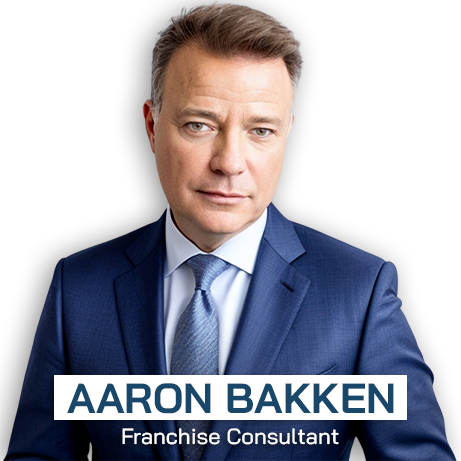 With hundreds of franchises to choose from, narrowing your options, and finally finding the perfect one to invest in is a challenge. If you have found that perfect one and are eager to start seeing more cash in your bank account but are hesitant because you’re unsure how to finance your franchise, this blog is for you.
With hundreds of franchises to choose from, narrowing your options, and finally finding the perfect one to invest in is a challenge. If you have found that perfect one and are eager to start seeing more cash in your bank account but are hesitant because you’re unsure how to finance your franchise, this blog is for you.
How Much Capital Will You Need To Start Your Franchise?
The cost to start a franchise can vary significantly depending on the specific franchise business and the industry segment where you plan to open your business. Some franchises have an initial franchise cost of $10,000, while others may be more expensive, with initial franchise costs going upwards of $5 million. However, most franchise costs will range between $50,000 and $200,000 to start your franchise business. Having an up-front investment can seem daunting, but knowing where to find the financing options to cover that initial cost can help you see the possibilities of getting started. Here are a few places you can look when identifying what type of funding is available.
Should I Use Personal Savings To Start A Franchise?
The biggest advantage to using your savings is that you don’t have debt service payments, you don’t have operating restrictions placed on you, and you don’t have to give up a big chunk of the upside potential of the business to someone else. The disadvantage is that if you use too much of your personal funds and then run into a situation where you need more money for the business, you may not be able to raise a loan or attract an investor at that point in time. Talking to your financial advisor is a good idea to determine how much of your personal savings you feel comfortable investing in your new venture. It is best to come up with various financial milestones to meet before you make an investment with personal savings.
Can I Use My 401 (K) To Buy A Franchise?
401(k) business financing (also known as Rollovers for Business Startups or ROBS) allows you to tap into your retirement account and use that money to start or buy a business or franchise. To access your money without triggering an early withdrawal fee or tax penalty, a ROBS structure must first be put in place. 401(k) business financing is an ideal method if you don’t want to go into debt, don’t qualify for a loan, or just don’t have the cash on hand to start or purchase a business. Unlike other types of funding methods, your credit score, past experience, or on-hand collateral play no role in eligibility. Instead, the main factors are the type of retirement account (like a 401(k) or IRA and the amount of money you have in it (at least $50,000). This technique is best done by financial experts. Be sure to work with a professional in this area if you want to use your 401 (k) to invest in your franchise. You do not want to pay the 10% early withdrawal penalty.
Getting A Loan
Yes, there are many financing options available for starting a franchise. Some franchisors offer financing assistance or have relationships with lenders who can provide financing for franchisees. In addition, there are many banks and other financial institutions that offer loans specifically for starting a franchise.
Two types of loans are available to future franchise owners:
- Conventional bank loans: Banks and credit unions can offer a wide variety of loan options for franchise businesses. These loans will likely have the most competitive interest rates and repayment terms but require strict criteria to qualify. You’ll typically need excellent credit, strong finances, and several years in business to get a franchise loan from a bank or credit union. You may also need to put up collateral to secure your financing. Before you approach your bank to request the loan reach out to the franchise for info about their story. The more you can share about their financials the easier it will be to sell the concept to the banker approving your loan.
- SBA (small business) loans: If a conventional bank loan is not available, you can apply for a small business loan. They are issued by participating lenders, generally banks and credit unions, and partially guaranteed by the U.S. Small Business Administration. SBA 7(a) loans and SBA CDC/504 loans can both be used for franchise financing. SBA 7(a) loans can be used for a range of purposes, whereas SBA CDC/504 loans must be used for large fixed-asset purchases. However, both of these SBA loans have long repayment terms and competitive interest rates. To qualify for an SBA franchise loan, you’ll usually need good credit, multiple years in business, and solid finances. Your franchise will also need to be listed in the SBA Franchise Directory to be eligible for funding.
Carefully review each option to determine what your alternatives are. Consult with a financial advisor who knows your situation if you are not well-versed in these matters. Then select the best course of funding to meet your resources and goals — which is often a combination of two or more of these approaches.
Contact Aaron (608-576-4592) for a Free Consultation!
—
 About Aaron Bakken
About Aaron Bakken
Franchise Consultant for The Franchise Consulting Company
Proven Experience
Aaron has 20+ years of franchise and independent business ownership experience. He also spent 5 years as the VP of Franchise Development for an international franchise group, growing the franchise to the advent of a private equity buyout. Whether you are looking to buy a franchise opportunity or franchise your business, Aaron knows how to guide you.
No Cost To You
Aaron is paid by franchisors and development companies for bringing them viable franchise investors. So frankly, his clients have nothing to lose by engaging with him but a bit of their time. Aaron helps his clients navigate the complex world of franchise ownership and development and provides long term guidance to help his clients achieve their entrepreneurship goals.
